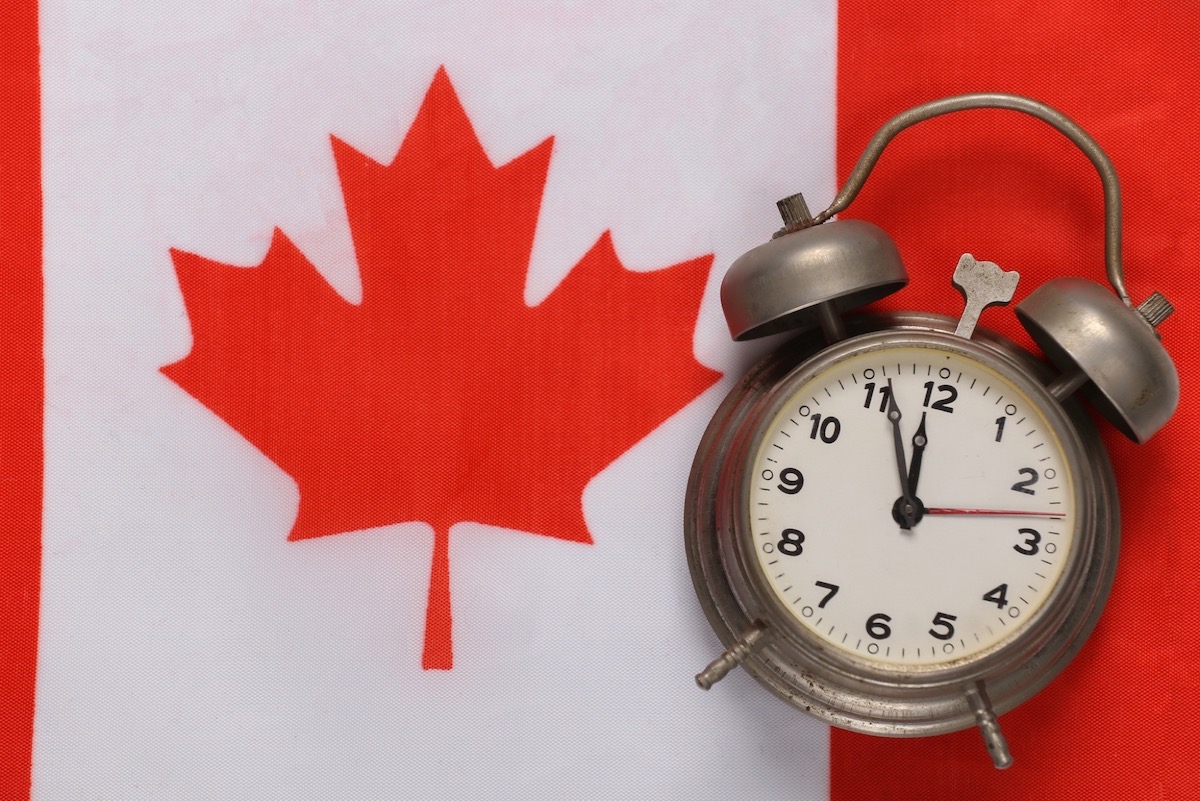Last Updated On 6 March 2024, 10:45 AM EST (Toronto Time)
To conform with daylight time, the clocks will be moved forward one hour on March 10, at 2 a.m., and there will be more light in the evening for Canadians.
Clocks are set backward and forward twice a year in Canada, in most of the provinces.
On November 5, 2023, clocks were moved back by an hour at 2 a.m. to extend evening daylight and shorten mornings.
Many countries around the world, including Canada, follow this time-honoured tradition.
In this article, we will discuss how DST works, its history, purpose, and significance in Canada, as well as the benefits and cons of this practice.
Clocks will be moved forward one hour at 2 a.m. on Sunday, March 10, after most individuals had reset their clocks the night before.
The time change adds extra light in the evening, but it will also get darker earlier in the morning.
Anyone using a SmartWatch or a SmartPhone does not need to adjust their clocks because they are automatically changed.
To correspond with daylight time, wall clocks and battery-powered wristwatches need to be set forward an hour.
Benjamin Franklin proposed Daylight Saving Time in the late 18th century, but it wasn’t until World War I and then World War II that countries officially adopted this practice to preserve energy during the battle.
Daylight Saving Time was introduced in Canada during World War I and again during World War II, but the country did not regulate its DST observance until 1966.
With a few exceptions, most of Canada’s provinces and territories presently observe daylight saving time.
Notably, DST is not observed in Saskatchewan, parts of British Columbia, and several regions in northeastern BC.
However, government law sets the start and end dates of DST in Canada, ensuring uniformity across the country.
Energy Conservation: One of the primary objectives of implementing Daylight Saving Time was to reduce energy consumption.
Extended Leisure Activities: Longer evenings allow for more outdoor activities, which are beneficial to both mental and physical health.
Canadians can spend more time outside in parks, recreation areas, and sporting venues.
Economic Benefits: Businesses in retail, travel, and hospitality commonly report higher revenues during daylight saving time.
Longer evenings allow people to go shopping, eat out, and engage in recreational activities, which contributes to economic growth.
Considerations and Debates Against DST
Disrupted Sleep Patterns: The transition to daylight saving time can disrupt people’s sleep patterns, causing temporary fatigue and adjustment difficulties.
People’s internal clocks may require some time to acclimatize to the new schedule.
Health Impact: Studies have shown that the change in sleep patterns associated with Daylight Saving Time may have short-term health consequences, such as increased stress and a potential increase in heart attacks.
Mixed Public Opinion: The public is typically divided on the issue of daylight saving time.
While some people prefer the longer evenings, others believe that the adjustment can be disruptive and that the benefits may not outweigh the drawbacks.
Daylight Saving Time is a long-standing Canadian custom that aims to maximize natural daylight while saving electricity.
While it has advantages, it is critical to consider the downsides and personal preferences when approaching the practice.
Opinions about Daylight Saving Time may change, like with any societal tradition, but its ongoing presence in Canada’s cultural and temporal context continues to influence our daily lives.
When does daylight saving time change in 2024?
In Canada, the time change normally takes place twice a year at 2 a.m.
In most places, clocks advance by an hour in the spring (known as daylight saving time) on March 10 and backward by an hour in the fall (known as standard time) on November 3 at 2 a.m. local time.
When do the clocks go back in 2024?
In 2024, the clocks in Canada will be turned back on November 3.





latest canada news, canada immigration news, immigration news canada, new ircc update, new ircc news,

Vikram Sharma is a globe-trotting journalist with a global perspective on international events. His articles offer readers a global perspective on international events, exploring complex geopolitical issues and providing insights into the world’s most pressing challenges.


